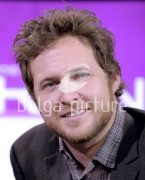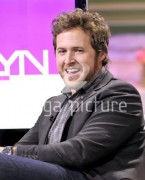Install the app
How to install the app on iOS
Follow along with the video below to see how to install our site as a web app on your home screen.
Note: This feature may not be available in some browsers.
You are using an out of date browser. It may not display this or other websites correctly.
You should upgrade or use an alternative browser.
You should upgrade or use an alternative browser.
Adam/AJ #3 - AdamRoss.Edu
- Thread starter Stepherweps
- Start date
perlnoir
Pathologist
Does anyone have/know where I could find some caps of Adam wearing his glasses when he was about to do the polygraph on "Damned If You Do"? I would be forever grateful, he just looked so darn cute in that scene. :adore:
ETA: Never mind... I found some. Thanks to wrthy2bluvd at lj. :adore: So when they download, I'll share them with you guys.
ETA: Never mind... I found some. Thanks to wrthy2bluvd at lj. :adore: So when they download, I'll share them with you guys.
Last edited:
Vildis
Lab Technician
I totally agree with you. He was so sweet and adorable when he wore glasses in that scene :adore: So share the pictures later 
By the way, am I allowed to be a little fangirly now? I have noticed that others talked about different conventions in the past. I am not going to any convention, as I live in a country where we don't get them at all. But AJ wrote on Twitter that he's going to Stockholm Film Festival, so I am going as well. I won't be there every day, but as many days as possible. I still don't know if any of his movies will be shown during the film festival. I gotta wait 8 days, as they'll publish the whole programme 26th october. But I think he's going to the festival because one of his movies will be shown. Well, I really hope so.
Anyway, I am really excited to go. Hopefully, I'll get the chance to meet him (and watch one of his movies). So yeah, I am happy at the moment
By the way, am I allowed to be a little fangirly now? I have noticed that others talked about different conventions in the past. I am not going to any convention, as I live in a country where we don't get them at all. But AJ wrote on Twitter that he's going to Stockholm Film Festival, so I am going as well. I won't be there every day, but as many days as possible. I still don't know if any of his movies will be shown during the film festival. I gotta wait 8 days, as they'll publish the whole programme 26th october. But I think he's going to the festival because one of his movies will be shown. Well, I really hope so.
Anyway, I am really excited to go. Hopefully, I'll get the chance to meet him (and watch one of his movies). So yeah, I am happy at the moment
Oh my goodness, I am so jealous of you Vildis, I can totally see why you'd be all fangirly and excited, I mean it's AJ. :adore: I would be too if I was in your position.  If you get the chance to meet him, you must give him a hug from me... Please? :lol: Oh, I'm so excited for you!
If you get the chance to meet him, you must give him a hug from me... Please? :lol: Oh, I'm so excited for you!
Oooh, and here are a few caps of Adorkable Adam, wearing his glasses... *Swoons*




(Click the thumbnails for the fullsize pics).
You can find the rest here at my photobucket.
P.S. Thanks so much to wrthy2bluvd at lj for these caps.
Oooh, and here are a few caps of Adorkable Adam, wearing his glasses... *Swoons*




(Click the thumbnails for the fullsize pics).
You can find the rest here at my photobucket.
P.S. Thanks so much to wrthy2bluvd at lj for these caps.
Vildis
Lab Technician
Thank you very much for those photos. He's too sexy for those glasses (I was inspired by a certain song :lol , but I love to see him wearing glasses :drool: That's what I call EYE CANDY
, but I love to see him wearing glasses :drool: That's what I call EYE CANDY
If I get lucky and actually meet him, I promise I'll give him a hug from you. And obviously take loads pictures and share here But I get it's a small chance, but I can always dream, right? But he has apparently been " announced" for another event 27-28th november (the last 2 days of the film festival, and AJ said on Twitter he would be there those days). So I am not sure AJ will attend the film festival during these days, but I can always dry to catch him any of the other days (and maybe one of his movies..).
But I get it's a small chance, but I can always dream, right? But he has apparently been " announced" for another event 27-28th november (the last 2 days of the film festival, and AJ said on Twitter he would be there those days). So I am not sure AJ will attend the film festival during these days, but I can always dry to catch him any of the other days (and maybe one of his movies..).
If I get lucky and actually meet him, I promise I'll give him a hug from you. And obviously take loads pictures and share here
PerfectAnomaly
Resident Smart Ass
Here's an article AJ Tweeted. It's about him being the spokesperson for some company - to be honest I didn't read the whole thing.
http://www.marketwatch.com/story/ma...-csi-new-york-2010-10-28?reflink=MW_news_stmp
http://www.marketwatch.com/story/ma...-csi-new-york-2010-10-28?reflink=MW_news_stmp
perlnoir
Pathologist
Beyond Borders Man-to-Man Campaign: AJ Buckley Call to Action - - > http://www.youtube.com/watch?v=j1W5rq4ycYc
Vildis
Lab Technician
I mentioned the film festival earlier. I am still going, and it's only 3 weeks left before I am gonna watch Skateland. Yes, it's one of AJ's movies. Have anyone else here seen that it yet?
I read the article as well, but I didn't read everything either. It's not that I don't care or found the article boring, or something like that. I just didn't understand it all, so it was easier to stop reading than to re-read it a couple of times just to try to understand it.
Perlnoir:
Thanks for the link.
I read the article as well, but I didn't read everything either. It's not that I don't care or found the article boring, or something like that. I just didn't understand it all, so it was easier to stop reading than to re-read it a couple of times just to try to understand it.
Perlnoir:
Thanks for the link.
perlnoir
Pathologist
BEFORE THE SCENE with Gary Sinise
by AJ BUCKLEY on NOVEMBER 15, 2010
Before the Scene is where we all start. In a small town with our families. In front of a mirror with our friends. The days spent sleeping on a couch. The nights working at a bar. Living with the unknown and surrounded by uncertainty. It’s about the times that define us. It’s about the darkness just before the limelight.
——–
Gary Sinise is a veteran of the stage and screen. Nominated for an Academy Award for 1994′s Forrest Gump, he has starred on CSI:NY as Detective Mac Taylor since 2004. In 2008, he received the Presidential Citizen Medal for his extensive humanitarian work with the USO.
——–
Q: What made you want to become an actor?
A: I don’t think anything made me become an actor. There were circumstances that came about accidently where I just fell in love with it. That all goes back to high school when I did my first play. I’ll always remember that as being a really significant point. People ask me sometimes what the highlights are of the things I’ve done in my acting life. Right up there is the very first thing I did: the moment I discovered it. You can’t ever take for granted the newness of something like that. It happened when I was a sophomore in high school and I just sort of stumbled on it accidently, or, it accidently stumbled on me. This drama teacher came walking down the hallway and saw me looking pretty scruffy standing with some of the guys in my high school rock band. She turned around and did a double-take, and said, “I’m directing West Side Story and you look perfect for the gang members so come and audition.” So I went in and thought that would be funny to audition for a play but then when I was hanging outside of the audition wondering, “What is an audition, what do you do?” and “I don’t know what this is but I’ll go and see what it is.” I saw all these pretty girls going into the audition and thought, “Well, I’m going to go in and see what this is about.” And then I ended up auditioning. I had no idea what I was doing, I was stumbling through [it] and trying to read it and I didn’t know what I was doing but I was cracking everybody up and everyone was laughing. She cast me in the show and I went to rehearsals and the whole thing began for me right there. And by the end of the show, I just cried like a baby when it was over. It had touched me so much. I discovered this brand new thing and that was really important.
Q: What was your biggest fear about acting?
A: That I would be terrible. Embarrass myself and everyone around me. And because of that, it makes you work harder, no matter what; you always have that fear of just being insufficient for what you’re supposed to be doing. Even now I never take it for granted that I’m going to be just able to go out there and do it, I always have to make sure I know where I’m going. It makes you work a little harder when you’re a little fearful of being bad.
Q: What was your lowest point, where maybe you thought, “I don’t know if this is right for me”?
A: I had a little bit of a different path, having started a theater company that was actually progressing and holding itself together because of the personalities and the people that were involved in it in Chicago. There was this sense of community and strength around it. Now were there low points during that time? Yes, there were. There were moments where I didn’t think the theater company was going to work and there were moments where I took a break from the theater, tried to come out to Hollywood back in the late ‘70s and make it in the movies and couldn’t get an audition to save my life, couldn’t get an agent. It was very difficult to be seen when you had no credentials, no name, no education because I didn’t go to college and have a theater background. All I had was this theater company that I started with my pals and at that time, nobody knew who we were. Now it’s a very well known theater company, but at that time nobody knew who we were. We were a very local, small company in Chicago and it wasn’t well known. At that point, I remember being in Hollywood and getting very bitter about stuff. When you’re young and can’t get anything going, you just start thinking everything’s terrible. You start trying to find excuses for why you can’t get work and it’s usually all because of somebody else. It’s their fault all the time, and it’s not your fault, ever.
Q: What kept you from walking away?
A: My theater company. I stayed in Hollywood for about a year in a half to try to get some jobs in the late ‘70s. My theater company was still growing and changing in Chicago, so I went back. I was a founder of it, but at that time, I was not running it. I went back and within a year, I became [its] artistic director. Then I started directing and directed some plays that started getting attention and the theater company started to get attention when we started taking our plays to New York and we just kept growing. So, having the solid family of theater peers in Chicago kept me, and many others, going through the time when you question everything.
Q: Who was your closest ally?
A: My wife, Moira. I have dear friends who were allies but we would always disagree creatively. It was a hotbed of exciting creative, electric energy that was always in conflict with itself because people wanted to go this way with it or go that way. So, we were constantly butting heads, which made us better all the time. The fighting with each other and the debating, the challenging…[it] made us all better actors. But through all those times of questioning my leadership of the company and whether I was trying to take [it] in the right way. Through all of that, my wife Moira, was always solid in my corner. Whenever I would get to feeling a lack of confidence in what I was trying to do, she was always very solid. We went through our times in the relationship when we questioned, but through the strong times, the clear times in our relationship, she was always my strongest ally.
Q: What were you doing the morning before that one audition that changed your life?
A: I would say the Forrest Gump audition [was] a career changing moment because that movie was such a popular movie and such a success. But you know, there has been a ton of those kinds of moments, where things were new and something changed and you just all of a sudden you find yourself here and you make a decision and something happens.
Q: Is there one time in particular that stands out?
A: It’s hard for me to remember what I was doing the morning I auditioned for Forrest Gump, but I do remember this: it was a Vietnam veteran… I have Vietnam veterans in my family and I had been very, very active with Vietnam veterans groups throughout the ‘80s, so when I read it, I really wanted to play the part. I knew what to do with it. I knew guys like that and I thought I could do it. I auditioned for it and then I called my agent and I asked, “What happened?” They were like, “Well, they are going to think about it, they auditioned a lot of people, they are not sure which way they are going to go.” So I said okay, well, that’s the way of the world here in Hollywood.
[At that point], I had done Of Mice and Men, and it was a success. Not a box office success, but critically it did well and some directors around town were interested in working with me. In fact, there were three movies I was up for at that time. One, I did a screen test for and it was between me and another guy, the other one I was just very close to it, and I just forgot about Forrest Gump.
About three weeks later, my manager called and said, “Looks like you might get Forrest Gump.” I am not going to name the other movies, but they were huge disappointments, real failures. But I would have taken them had I got them. And luckily, Forrest Gump came along and I got to do that and that was a good thing.
Q: What were the words that kept you going?
A: I have always been the kind of person that doesn’t wait around. I don’t know why that is. I go back to the second and third grade and I was the kid in the neighborhood that would get the other kids together for the volleyball game or the baseball game. I was the kid that was the organizer. On the music front, I was always the guy that kind of led the band. So, I had this sort of do-it-yourself attitude about a lot of things. I think part of it came from an overcompensating for an inadequacy that I would feel, like I wasn’t good academically at school, so I would do other stuff.
When I graduated from high school I started a theatre company and I was just always trying to compensate for what I felt were flaws on the education side. I got terrible grades straight from kindergarten to high school. I didn’t graduate with my class because I didn’t have enough credits, so I had to go back and take another semester to make up for stuff I didn’t do. So I was constantly trying to overcome these inadequate feelings by building stuff, and doing physical labor rather than talking. I think that attitude has gotten me through a lot of difficult stuff. Over the years, I have tried to make up for that stuff that I feel I may not have learned as I young person and I have learned to rely on those instincts a lot more, rely on the intuitive nature of what you are feeling a little bit more. You know, because now, I’ve been through it so many times, you learn how to get through it, you’ve done it before, you know how to get through it, you can get through it again. The more of those little battles that you win, the more confident you are in your abilities to get through those types of things.
Q: What words would you give to people that are going through a time; do you have some words inspiration?
A: Look. I go out and I do a lot of different types of things. I see a lot of people that don’t have a lot of stuff and are going through really difficult times in their lives. Yet they somehow over come them. You know, parents that lose a child in the war. A soldier who loses his limbs or his sight or has a brain injury, or kids that have lost a parent: these people are going through a really serious thing. Yet somehow, and I am constantly amazed, people get through these things in their lives, if you look at it and you listen to the stories from people that have faced tremendous obstacles in their lives and overcome them. There is truly a resiliency and strength in the human spirit and in what people can do.
I know one guy who is amazing: his name is Story Musgrave. If you look at what he went through in his childhood and what he accomplished in his life… getting five PhDs, becoming an astronaut and a scientist, flying on the shuttle six times, repairing the Hubble telescope. There are some remarkable people out there and there are people that get through really serious things and I am always inspired by what folks get through. You may think there is no possible way they are going to get through it and then they do. They look back on it and they pass their stories on to new generations to give them hope and inspiration and that has happened for centuries. Those stories get passed down over and over and over and we learn from them and we say, “If they can get through that then maybe I can get through this.”
——–
Over the past six years, AJ has starred as Adam Ross on the hit TV show CSI:NY, soon to premiere in its new time slot, Friday nights at 9pm. Originally from Dublin, he has spent the past ten years in Los Angeles acting and writing. AJ is also currently writing and starring in the web series Ghostfacers for Warner Bros www.GhostFacers.com., and has the romantic comedy Christmas Mail opening this winter. Find out more at www.ajbuckley.net.
Tagged as: AJ Buckley, Before the Scene, CSI:NY, Gary Sinise
source : http://scenelouisiana.com/before-the-scene-with-gary-sinise/2010/11/
Grissom rules
CSI Level Two
Thanks for the interview perlnoir!!!!
TheChaoticBox
Rookie
AJ Buckley Interview - Ghostfacers, Supernatural, CSI New York
http://www.youtube.com/watch?v=HMNyTn3mR6s&feature=youtube_gdata_player
http://www.youtube.com/watch?v=HMNyTn3mR6s&feature=youtube_gdata_player













